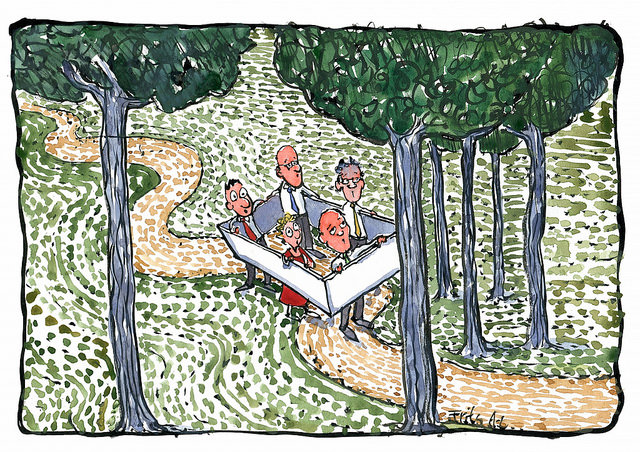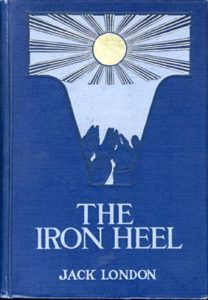Progress & Poverty, classic version, meets weekly for ten Thursdays thru November 17. First session free, but if you choose to register we request $25 to help with expenses. Optional preregistration. More about the course.
If you want to understand the underlying causes of persistent poverty in America, you’ll benefit from this course. This is the “modern” version, based on Bob Drake’s “Abridged for Modern Readers” edit of Henry George’s original book. As always, the first class session is entirely free, but if you decide to enroll in the course we request a $25 fee to help cover costs. Veteran HGS instructor Bob Jene will help you understand not only the causes of economic stagnation, but a workable remedy.
This course will meet for six consecutive Friday’s beginning January 6. Our space at Overflow Coffee Bar is directly served by CTA routes 62 and 29, and a reasonable walk from Red, Green, and Orange Line Roosevelt station, as well as Metra Electric’s Museum Campus and 18th Street stops.

We’ll gather in a rundown south Evanston back yard [you get the exact address when you RSVP; be assured it is half a mile to publc transportation.] to commemorate Henry George’s 178th birthday (actually he was born September 2, but by tradition we use Labor Day). This year, we’re also celebrating our transition to a virtual school using multiple locations, no longer paying monthly rent to a landlord.
Thanks to the generosity of HGS supporters past and present, everyone who’s completed any HGS course, ever, is welcome to attend without charge. Bring a significant other, or a friend who might find HGS of interest, also no charge. And of course no charge for your minor dependents. We hope to see people who might have taken a course years ago and almost lost touch with us. Come by, meet some of the new students and graduates, as well as the volunteer staff.
There will be food, drink, a lot of conversation and maybe some productive discussion about how to help our community understand how the economy works, the fundamental principles which can be harnessed to bring prosperity and freedom.
PLEASE PLEASE PLEASE let us know by Friday September 1 whether you’ll be coming. It would be great, but not required, if you can bring something to share. Monetary donations are also extremely welcome, and can be made here, or by check to the School, or at the event.
The annual gathering of North American activists and educators promoting economic justice. The date and location are set, but other details will be posted to their site as they are determined.
More information about this six-session course is here. and here. This section of the course is free but you should preregister.
Yes, it is possible to end poverty in America — or any independent nation — by recognizing a clear and logical distinction between private property and community property. Not just the poor, but everyone would have the opportunity to earn a decent living and enjoy better quality of life. Henry George, a famous American philosopher and economist of the late 19th century, was the most prominent advocate of this reform. His book on the subject, Progress and Poverty, probably the best-selling nonfiction work of his time, sparked a movement which brought prosperity to several American communities and foreign countries.
Introducing Progress and Poverty is a program by the Henry George School of Chicago, outlining the principles George advocated, how and why they work, and their potential for solving today’s problems in this city and elsewhere. Attendance is without charge or obligation.
For those wanting in-depth understanding of the logic and implications of Progress and Poverty, this presentation is also the first session of an extended course, meeting at the same location on the next six Fridays.
This event is open to everyone. RSVP is optional by email or by phoning us at 312 362-9302.
If you are interested in the topic but this date and location don’t fit your schedule, please sign up for our announcement list.
Introducing Progress and Poverty will also be offered on January 12 on the northwest side of Chicago, and January 15 in the Loop.
Yes, it is possible to end poverty in America — or any independent nation — by recognizing a clear and logical distinction between private property and community property. Not just the poor, but everyone would have the opportunity to earn a decent living and enjoy better quality of life. Henry George, a famous American philosopher and economist of the late 19th century, was the most prominent advocate of this reform. His book on the subject, Progress and Poverty, probably the best-selling nonfiction work of his time, sparked a movement which brought prosperity to several American communities and foreign countries.
Introducing Progress and Poverty is a program by the Henry George School of Chicago, outlining the principles George advocated, how and why they work, and their potential for solving today’s problems in this city and elsewhere. Attendance is without charge or obligation.
For those wanting in-depth understanding of the logic and implications of Progress and Poverty, this presentation is also the first session of an extended course, meeting Tuesday evenings at 333 S Wabash Ave #2700 from January 22nd thru March 19.
This event is open to everyone. RSVP is optional by email or by phoning us at 312 362-9302.
If you are interested in the topic but this date and location don’t fit your schedule, please sign up for our announcement list.
Introducing Progress and Poverty will also be offered on January 11, 2019, at Levy Center Evanston Introducing Progress and Poverty at Levy Center Evanston and on January 15, 2019, in the Loop. Introducing Progress and Poverty in the Loop
Yes, it is possible to end poverty in America — or any independent nation — by recognizing a clear and logical distinction between private property and community property. Not just the poor, but everyone would have the opportunity to earn a decent living and enjoy better quality of life. Henry George, a famous American philosopher and economist of the late 19th century, was the most prominent advocate of this reform. His book on the subject, Progress and Poverty, probably the best-selling nonfiction work of his time, sparked a movement which brought prosperity to several American communities and foreign countries.
Introducing Progress and Poverty is a program by the Henry George School of Chicago, outlining the principles George advocated, how and why they work, and their potential for solving today’s problems in this city and elsewhere. You may attend without charge or obligation.
For those wanting in-depth understanding of the logic and implications of Progress and Poverty, this presentation is also the first session of an extended course, meeting Tuesdays at the same time and place thru March 19.
This event is open to everyone. Due to building restrictions, RSVP is MANDATORY by email or by phoning us at 312 362-9302. The security desk will have a badge for you.
If you are interested in the topic but this date and location don’t fit your schedule, please sign up for our announcement list.
Introducing Progress and Poverty will also be offered on January 11, 2019, at Levy Center Evanston Introducing Progress and Poverty at Levy Center Evanston on January 12, 2019, in the Irving Park neighborhood on the northwest side of Chicago. Introducing Progress and Poverty in Irving Park
 Bob Matter’s Political Economy Book Club is reading Jack London’s dystopian novel The Iron Heel. On June 25 we’ll discuss chapters 1-13, and on July 23 chapters 14-25. This 1908 text is available free from Project Gutenberg, in hardcopy from some public libraries, or as an audiobook. You can buy used hardcopies for < $10 from several vendors.
Bob Matter’s Political Economy Book Club is reading Jack London’s dystopian novel The Iron Heel. On June 25 we’ll discuss chapters 1-13, and on July 23 chapters 14-25. This 1908 text is available free from Project Gutenberg, in hardcopy from some public libraries, or as an audiobook. You can buy used hardcopies for < $10 from several vendors.
We’ll meet at the East Loop location of Bridgeport Coffeehouse, 73 E Jackson Blvd.
